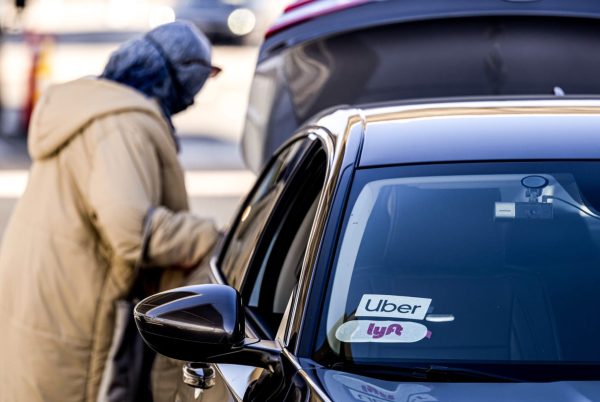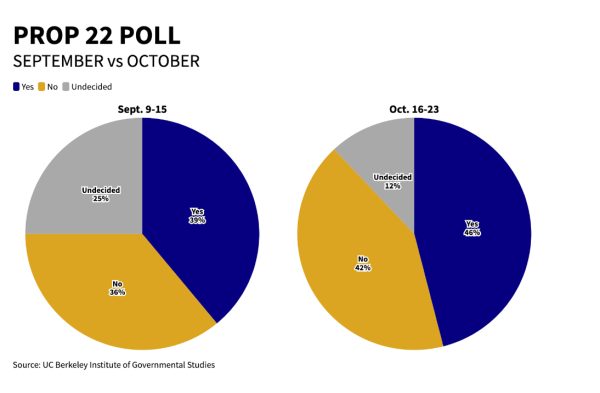
The classification of gig workers, especially rideshare drivers for companies like Uber and Lyft, is a topic of debate in California. This summer, the issue resurfaced around Proposition 22, a landmark 2020 law allowing app-based companies to distinguish their drivers as independent contractors rather than employees. Prop 22 effectively exempted Uber, Lyft, and similar companies from AB5— a bill that required companies to classify workers as employees if they meet specific criteria; that classification would entitle gig workers to benefits like health insurance, paid leave, and minimum wage.
While Prop 22 passed with majority support, a California judge ruled it unconstitutional in 2021, arguing that it overstepped by limiting workers’ rights to unionize. Uber and Lyft appealed the ruling, and the California Supreme Court agreed to hear the case in 2024:
On one side, Uber and Lyft argue that the independent contractor status offers drivers schedule flexibility, which is key for drivers who work for supplemental income. According to a 2023 survey by Uber, 75% of drivers preferred the flexibility of contractor status, allowing them to work around other commitments such as employment and family needs. Damiaias Eusebio expressed concern for his job as a food delivery driver: “if [Proposition] 22 doesn’t pass, I am afraid it will take away the flexibility that I have right now.” Uber and Lyft argue that employment status would not only lead to restrictive schedules but also become a burden for rideshare companies, who would be forced to pay employer benefits and insurance. This extra weight could result in employee layoffs and skyrocket service prices.
On the other hand, many labor advocates argue that this flexibility should not come at the cost of an employee’s right to benefits. A study by UC Berkeley in 2024 found that the average hourly earnings of drivers, after expenses, are just $8.55—well below California’s minimum wage. Furthermore, drivers classified as independent contractors do not receive benefits such as health insurance, paid time off, or unemployment protections, leaving many without a social safety net. According to a study by the Economic Policy Institute, only 15% of gig workers have access to employee-sponsored health insurance. Additionally considering that many rideshare drivers take large financial risks to work in the industry- such as investing in a car, gas, and maintenance- employee benefits would greatly help aid the financial strain of rideshare employees. Proponents of employee classification argue that it is unethical to deny drivers basic labor rights and protections, especially given that the majority of their income often relies on rideshare platforms. They claim that these companies are evading the extra expense of employee benefits by classifying drivers as contractors and negating the financial-strain that a large demographic of rideshare employees face.
The classification of gig workers, especially rideshare drivers for companies like Uber and Lyft, is a topic of debate in California. This summer, the issue resurfaced around Proposition 22, a landmark 2020 law allowing app-based companies to distinguish their drivers as independent contractors rather than employees. Prop 22 effectively exempted Uber, Lyft, and similar companies from AB5— a bill that required companies to classify workers as employees if they meet specific criteria; that classification would entitle gig workers to benefits like health insurance, paid leave, and minimum wage.
While Prop 22 passed with majority support, a California judge ruled it unconstitutional in 2021, arguing that it overstepped by limiting workers’ rights to unionize. Uber and Lyft appealed the ruling, and the California Supreme Court agreed to hear the case in 2024:
On one side, Uber and Lyft argue that the independent contractor status offers drivers schedule flexibility, which is key for drivers who work for supplemental income. According to a 2023 survey by Uber, 75% of drivers preferred the flexibility of contractor status, allowing them to work around other commitments such as employment and family needs. Damiaias Eusebio expressed concern for his job as a food delivery driver: “if [Proposition] 22 doesn’t pass, I am afraid it will take away the flexibility that I have right now.” Uber and Lyft argue that employment status would not only lead to restrictive schedules but also become a burden for rideshare companies, who would be forced to pay employer benefits and insurance. This extra weight could result in employee layoffs and skyrocket service prices.
On the other hand, many labor advocates argue that this flexibility should not come at the cost of an employee’s right to benefits. A study by UC Berkeley in 2024 found that the average hourly earnings of drivers, after expenses, are just $8.55—well below California’s minimum wage. Furthermore, drivers classified as independent contractors do not receive benefits such as health insurance, paid time off, or unemployment protections, leaving many without a social safety net. According to a study by the Economic Policy Institute, only 15% of gig workers have access to employee-sponsored health insurance. Additionally considering that many rideshare drivers take large financial risks to work in the industry- such as investing in a car, gas, and maintenance- employee benefits would greatly help aid the financial strain of rideshare employees. Proponents of employee classification argue that it is unethical to deny drivers basic labor rights and protections, especially given that the majority of their income often relies on rideshare platforms. They claim that these companies are evading the extra expense of employee benefits by classifying drivers as contractors and negating the financial-strain that a large demographic of rideshare employees face.

While Pro-Prop 22 argues that the traditional employment model does not suit the flexibility gig workers seek, Anti-Prop 22 sympthasize with strained rideshare employees and argue that companies like Uber and Lyft are exploiting workers by avoiding the costs associated with full employment. In the end, California’s decision will not only define gig worker rights in the state, but also influence similar legislative debates across the country.

